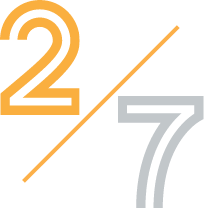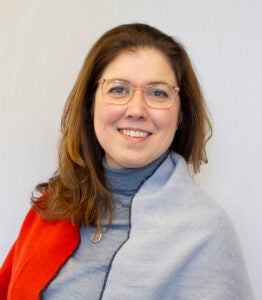
Motivated by personal experiences, Ariadne Labs researchers apply their expertise to change how health care is delivered.
By Erin Lawler and Stephanie Schorow
As a coal miner’s wife, with little cash on hand in the 1930s, Ava knew how to barter. She packed up a fresh-baked pie, eggs, and a chicken and raced down from the mountain in rural Kentucky into town cradling her youngest child. Eighteen-month-old James Monroe was really sick, and she hoped the mining company’s doctor could help her little boy. She offered him the pie, the eggs, and the chicken. But the doctor refused to take anything but money for service.
James Monroe died a few days later, his short life becoming an oft-told family cautionary tale.
Growing up, Katherine Semrau, PhD, MPH, now Director of the BetterBirth Program at Ariadne Labs, heard the story of her great-grandmother’s desperate bid for her child and a heartless health system. “It really highlighted for me health inequity and disparity and how those who are the poorest and who often work the hardest end up being left behind,” she said. “And so I knew I wanted to be in health care and health care intervention from a relatively young age.”
“It really highlighted for me health inequity and disparity and how those who are the poorest and who often work the hardest end up being left behind,”
Katherine Semrau, PhD, MPH

In the state of Washington, a young nurse Amber Weiseth, DNP, MSN, RN, was working in the labor and delivery department when a mother began to hemorrhage. Unfortunately, the hospital did not have ready access to blood products, and Weiseth feared losing the patient. She knew a system should be in place so that this sort of thing wouldn’t happen. She knew what to do but she lacked the tools to do it. She had never felt so powerless. The woman pulled through, but Weiseth had changed. “That sense of powerlessness and knowing that it was a system issue really spurred me on to learn about quality improvement,” said Weiseth, DNP, MSN, RN, now the Director of the Delivery Decisions Initiative at Ariadne Labs.
After completing an internal medicine residency at Yale-New Haven Hospital, Evan Benjamin, MD, MS, FACP, worked for four years for the Indian Health Service on a reservation in Zuni, New Mexico. Resources were limited, and Benjamin began to think about how the knowledge he was gaining could be applied to the entire U.S. health care system. He was moved by the many diabetes cases he was treating, and he took a position as a public health epidemiologist trying to improve the diabetes care system. “How do we get the best screening methods and the best treatment protocols in place, and how do we decrease the practice variation and get everyone the right care at the right time?” he wondered. Benjamin is now Director of Community Innovation at Ariadne Labs.
Three health care and public health professionals. Three different life paths. Yet a thread connects them – a thread that is both a place and a vision. The place is Ariadne Labs, a first-of-its-kind joint center for health systems innovation at Brigham and Women’s Hospital and the Harvard T.H. Chan School of Public Health. Founded in the fall of 2012 by Atul Gawande, MD, MPH, and Bill Berry, MD, MPA, MPH, the lab is celebrating its 10-year anniversary after a decade of remarkable growth and impact.

Many may hear the word “lab” and think of people in white coats huddled over petri dishes and test tubes developing new drugs or treatments for disease. Ariadne Labs, however, is a center for follow-through innovation. Instead of developing new treatments, the lab bridges clinical medicine and public health to develop system interventions that deliver those breakthroughs to patients around the world. The founders of Ariadne Labs were motivated by the reality that there is a disconnect between what clinicians and public health practitioners know how to do and what actually happens in day-to-day practice.
Over the last decade, the lab has brought together experts in medicine, public health, human-centered design, and implementation science to design, test, and spread solutions to some of health care’s biggest challenges. The goal is to make health care safer, more equitable, and more integrated.
The idea of developing and implementing focused solutions even inspired the name of the organization: Ariadne was a Greek princess who helped the hero Theseus out of a labyrinth with a single thread.
From a small staff and an initial focus on three core areas — improving safety in surgery and maternal health and improving communication with patients living with serious illness — Ariadne has evolved to cover a large portfolio of projects with more than 150 staff and associate faculty. “We wanted Ariadne Labs to be a shining example of the innovation that is possible when you bring together people from different professional backgrounds,” said Berry.
Ariadne’s work tackles issues across a range of clinical areas, including primary health care, surgical safety (Safe Surgery/Safe Systems); maternal and infant health (BetterBirth, Delivery Decisions Initiative); providing digital decision-making tools (Better Evidence), patient-centered care for those with serious illnesses (Serious Illness Care Program); eldercare; medical care at home (Home Hospital); improving implementation (Atlas Initiative); and addressing medical harm (PACT Collaborative). More recent initiatives include Precision Population Health, which aims to bring the power of genomic medicine to primary care settings. Through the Spark Grant program, the lab funds new and early-stage ideas that address gaps in health care systems and improve delivery of care.
Like Ariadne’s famous filament, a thread connects the work in seemingly disparate clinical areas.
“All of our most impactful programs and initiatives create the tools needed to better promote a set of solutions — either within the health care team structure or through new mechanisms,” said Ariadne Labs Executive Director Asaf Bitton, MD, MPH, who first joined the lab in 2013 to lead a primary health care program. “They focus on solutions that improve safety, solutions that improve equity, and solutions that improve the integration of the health care environments or the integration of health care and public health.”
Bitton’s passion for Ariadne’s mission and his pride in the lab’s ten years of accomplishment runs deep. “I think that we are doing something special here. I think that there’s enormous need, demand, demonstrated impact, and potential for our work,” he said.
